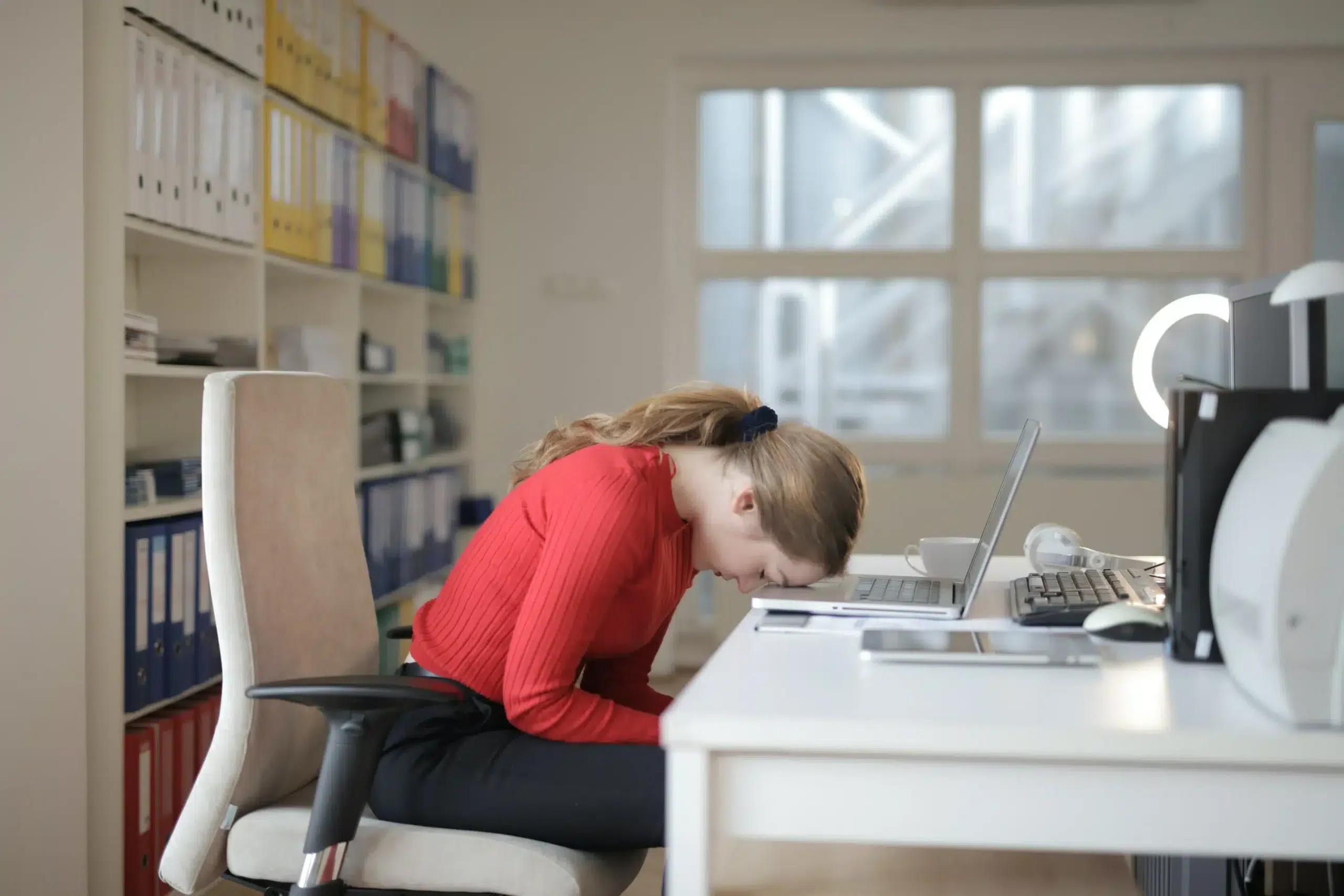Do you ever find yourself lying in bed staring at the ceiling, and simply can’t fall asleep because of anxiety? Chances are, either you or someone you know has trouble falling asleep because of anxiety and/or depression. You’re not alone. If you don’t have that problem, we’re still glad you’re here anyway!
The American Psychological Association recently conducted a survey of over 3,000 adults across the country, and found 32% of respondents said they frequently can’t sleep because of anxiety issues at bedtime. While it’s not a very large sample size, the statistic is pretty astonishing nonetheless. That’s 3 out of 10 people!
“Do not be anxious about anything, but in every situation, by prayer and petition, with thanksgiving, present your requests to God. And the peace of God, which transcends all understanding, will guard your hearts and your minds in Christ Jesus.”
– Philippians 4:6-7 (NIV)
Anxiety and depression cause a lack of sleep, and the lack of sleep causes anxiety and depression. It’s frustrating, and feels like an endless loop. Fortunately, there are some things you can do to manage your anxiety and improve your chances of getting a good night’s sleep.
Our clinically excellent Christian counselors have a variety of methods to help with racing minds, especially when it comes to limiting sleepless nights. We’ve included a few of these methods below.
6 Things to do When You Can’t Sleep Because of Anxiety:
1) Establish a Bedtime Routine: Establishing a consistent bedtime routine can help your body and mind prepare for sleep. This could include taking a warm bath, reading a book, practicing prayer and meditation, or listening to calming music. By creating a relaxing and predictable routine, you can signal to your brain that it’s time to wind down and get ready for sleep
2) Limit Screen Time: Exposure to electronic devices such as smartphones, laptops, and tablets emit blue light which can suppress the production of melatonin, a hormone that helps regulate sleep-wake cycles. Does anyone play Angry Birds anymore, by the way? This blue light can interfere with your ability to fall asleep and stay asleep, especially when you add anxiety to the equation. Try to limit your screen time for at least an hour before bedtime, or use blue light-blocking glasses to help reduce the negative effects of blue light.

3) Prayer and Mindfulness: Prayer is a powerful tool for managing anxiety. Focusing on God’s grace while practicing mindfulness exercises such as deep breathing, body scans, or progressive muscle relaxation, can help calm your mind and body before bed. Not sure how to pray? Here are a few prayer practices to help get you started.
4) Create a Comfortable Sleep Environment: Creating a comfortable sleep environment can help you relax and feel more at ease. Make sure your bedroom is cool, dark, and quiet, and invest in comfortable bedding and pillows. You may also want to consider investing in a white noise machine or earplugs to block out any unwanted noise. When you can’t sleep because of anxiety, changing up the environment in your bedroom can be a huge help.
5) Challenge Negative Thoughts: Anxiety often involves negative and unrealistic thoughts that can keep you up at night. Challenge these thoughts by asking yourself if they are based on facts or assumptions. Consider the evidence for and against your negative thoughts and try to reframe them in a more positive and realistic light.
6) Seek Professional Help: If you are experiencing anxiety attacks or can’t sleep because of anxiety on a regular basis, it may be time to seek professional help. Our Christian counselors can help you develop coping strategies and provide support and guidance to manage your anxiety.
It can be challenging when you can’t fall asleep because of anxiety, but it’s not impossible to overcome. By establishing a bedtime routine, limiting screen time, practicing mindfulness, creating a comfortable sleep environment, challenging negative thoughts, and scheduling a counseling appointment, you can improve your chances of getting a good night’s sleep and reduce your anxiety levels. Remember that managing anxiety is a journey, and it may take time to find what works best for you. With patience and persistence, you can learn to overcome your anxiety and get the rest you need.
FIND A CHRISTIAN THERAPIST
Research shows that much of the change people experience during their time in therapy is because they felt heard and understood by their therapist–that their therapist “got them” and that the guidance they gave was relevant and applicable. Because of this, it is critical that you find a therapist whom you can connect with, whom you feel comfortable with, whom you feel “gets you.” Therefore, we encourage you to take a few minutes to read a little about each one of our therapists. If you prefer to look at the counselors nearest to you, please click the office location buttons below. Otherwise, you can meet with any of our Christian Counselors online from the comfort of your own home. If you have questions about any of them, please contact us!





